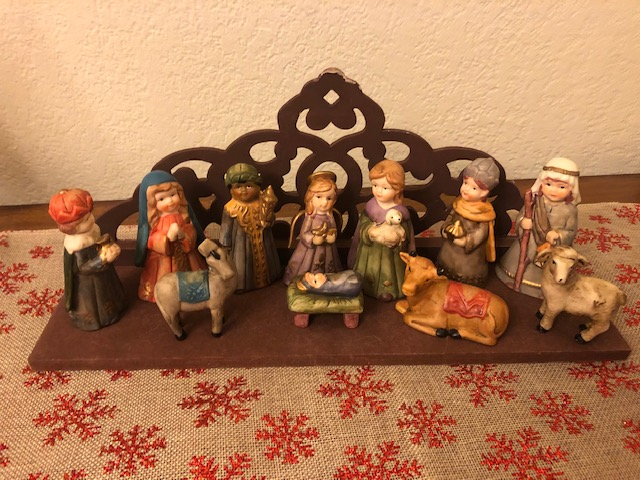Politeness of the holidays
The nativity scene celebrates the birth of Jesus on Christmas day.
December 23, 2021
Merry Christmas – it’s a universal saying that originated from the 16th century with an English Catholic Bishop, John Fisher. In the modern world, the phrase has received backlash for its exclusivity of the different holidays celebrated around this time of year as well as the religious meaning behind it.
This begs the question: is the phrase “Merry Christmas” still appropriate to use today to express one’s festive joy? The answer is more complex than it first seems.
“When I’m working, I say ‘Happy Holidays’ to be more inclusive because I know that Christmas is not the only holiday celebrated around this time of year,” said Meadowlark Dairy employee Jacob Kramer (‘23).
The United States is known as a melting pot with diverse cultures and religions. Saying “Merry Christmas” specifies Christmas out of all the many holidays during the end of the year, including Hanukkah and Kwanzaa. With an increasingly diverse population, more are in support of saying “Happy Holidays,” rather than “Merry Christmas.”
Although, only 46% of Americans celebrate Christmas religiously rather than culturally, and the majority feel less of a religious impact on the celebration of Christmas than years past.
“I am fine with saying the phrase ‘Merry Christmas’ because there aren’t any bad implications behind it, as I use it to spread joy with the holidays,” said Handson Li (‘23).
Though saying “Merry Christmas” may feel like a religious phrase– for most Americans– it is not. Christmas is not a strictly religious holiday, as 90% of Americans celebrate Christmas.
“I celebrate both Hanukkah and Christmas, so it doesn’t really matter to me if someone tells me ‘Merry Christmas’ or ‘Happy Holidays,’ but some people might care, and it’s good to be aware of that,” said Jackson Devoe (‘23).
Though most Americans do celebrate Christmas, there are various holidays in the latter part of the year that don’t get highlighted as often as they should. To name a couple, Hanukkah is a Jewish festival celebrated from November 28th to December 6th, and Kwanzaa celebrates African American culture from December 26th to January 1st. It can appear impolite to disregard these other holidays by only saying “Merry Christmas.”
While there doesn’t seem to be any exclusivity or negative connotation behind the phrase “Merry Christmas,” it is still a safer bet to say “Happy Holidays” to anyone you don’t know what holiday they celebrate for inclusivity and politeness.
However, people should not receive backlash for using “Merry Christmas,” to celebrate Christmas.





